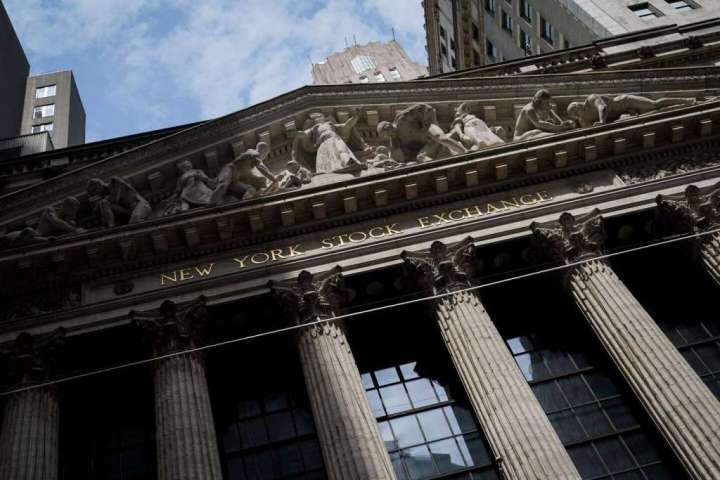Stocks, oil prices and bond yields fell Tuesday as investors grappled with a dimming global economic outlook alerted by a sinking euro.
Stocks, oil prices fall, dollar spikes as investors weigh recession risk

The euro hit its lowest point in 20 years to move nearly even with the U.S. dollar, a slump that analysts attributed to a combination of forces, including the continent’s energy crisis sparked by the war in Ukraine and the European Central Bank’s lagging actions.
The weakened common currency could intensify the eurozone’s struggles with inflation, which in June rose to 8.6 percent, the highest level since the euro was created in 1999. Imports would become more expensive under a weaker currency, making it harder for the central bank to bring inflation back to 2 percent, a rate it equates with price stability.
Stocks ended sharply lower Monday ahead of earnings season — which begins in earnest this week — with the Nasdaq slumping 2.3 percent, S&P 500 falling 1.2 percent and the Dow dipping 0.5 percent. PepsiCo reported better-than-expected revenue and earnings per share before the opening bell Tuesday as inflation left consumers paying more for its namesake soda and snacks like Doritos.
Investors will be closely monitoring results from the major banks, including JPMorgan Chase and Morgan Stanley on Thursday, and Wells Fargo, PNC Financial and Citigroup on Friday, to gauge the health of the economy.
Commodities also bent back, with Brent crude, the international benchmark, toppling 4.3 percent to $102.4 per barrel. The U.S. benchmark, West Texas Intermediate crude, plunged 4.7 percent to $99 per barrel. The dwindling price wiped off the rebound on Monday, with coronavirus disruptions in China after the first case of the B. A. 5.21 variant being the primary driver. The international market feared that its zero-covid policy could cause the world’s largest importer to reduce oil demand.
The yield on the 10-year Treasury fell seven basis points to 2.92 percent. Bond yields move inversely to prices.






